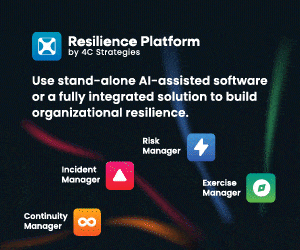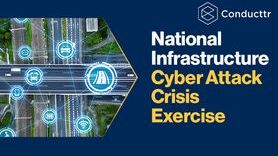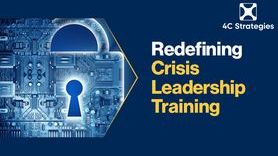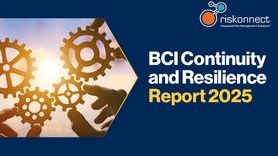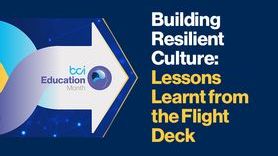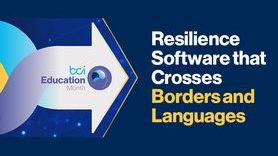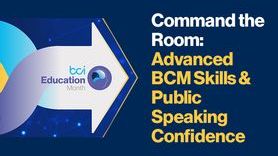New to Business Continuity?
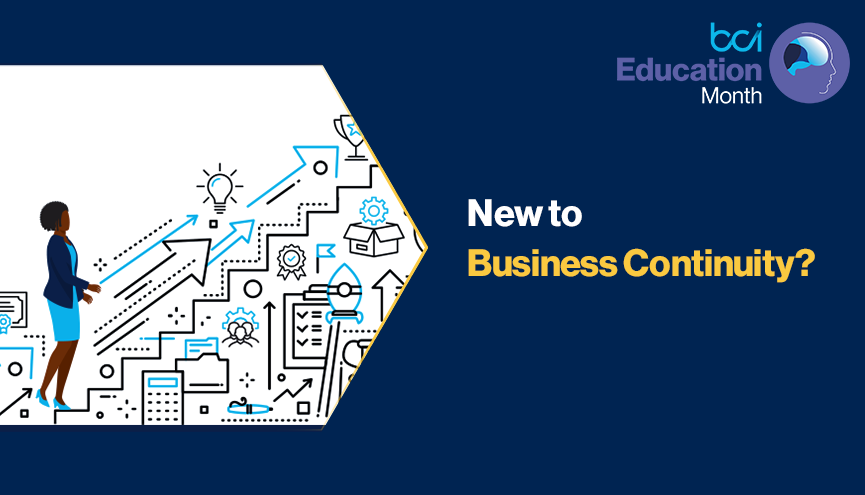
By Genevieve Vincent CBCI, Cyber Resilience Consultant
‘I just fell into resilience’. This was a common theme amongst the panellists of a recent BCI Women in Resilience (WiR) event. Most of the panellists had been in the industry for over 10 years and all had come into the field of Business Continuity (BC) through very different routes. I am no different, however, I am four years into my professional career.
The majority of blogs I’ve read have been from people who are well into their careers. Although, I think it can be useful to hear from someone who is only a small step away from yourself. So, for anyone reading this who is just starting out in their BC journey or looking to see if it might interest them as a change of career, I may be able to shed some light into how I have found it and my advice from the years I have spent working in this area.
Firstly, for anyone completely new to BC, it’s worth starting with a definition. It is the ‘capability of an organization to continue the delivery of products and services within acceptable time frames at predefined capacity during a disruption’, according to ISO 22300: 2021. The basic question is: should a disruption occur, will an organization be able to get back to delivering its most critical services within an agreed time frame that results in no adverse repercussions for the business?
I found my way into the Cyber Consulting team at KPMG after completing a chemistry degree. I realised that chemistry was not the career for me but still wanted to work in a field that was extremely exciting and relevant. Throughout my time working in the cyber team, I have worked on a range of different issues, but an area that really took my interest was cyber resilience. Particularly, how organizations can improve their cyber capabilities to better prepare, respond to and recover from a cyber attack. It was here that I was introduced to the world of BC and the very close links it has with cyber resilience.
I am a resilience consultant, rather than being part of an in-house resilience team in an organization, so I don’t work with just one company. In my opinion, this has many advantages for someone starting out in the profession. It gives you great exposure to different types of organizations, the different risks they face and their culture around BC. Part of the constant challenge BC professionals face is raising the awareness and importance of BC within an organization.
Although, due to the pandemic and war in Ukraine, we are seeing a shift in this attitude.
With these crises occurring, organizations have had more of an understanding of why crisis management is so important. However, organizations don’t want to get to crisis point if it can be helped. This is where the prepare and prevent stages are so important, with BC playing a part in this process. BC, as well as crisis management, are being pushed to the forefront of some of the Executive Leadership teams as a priority. This has helped with the understanding of what BC and crisis management means and what can happen if you are not prepared. It is making the resilience sector an extremely exciting place to be at the moment.
To help any of you who are interested in joining the field of BC or are already hooked after a couple of years and want to up your game, I have laid out a couple of pointers that I have found to be useful.
Training
I recently passed the CBCI exam (Certificate of the Business Continuity Institute) which, after revising for it, gives you a very good understanding of the BC lifecycle and its component parts. I personally found it more useful to take this exam after spending a few years in the BC sector because it meant that, as I went through the exam material (BCI Good Practice Guidelines, which is based on ISO 22301), I could relate the theory back to instances I had faced in practice. This meant that the exam became more of a top up rather than learning from scratch. That being said, of course you could do the CBCI exam first to get your foot in the door of the BC world and then apply the knowledge you have learnt. I also did a week-long course in preparation for the CBCI, through The BCI, which I would highly recommend. We not only went through the exam material in depth, but I also gained knowledge and different ways of looking at things through the other participants on the course. It was an ideal place to learn from each other, which I thought was a great opportunity.
By passing the CBCI, you can then join the membership programme of the BCI. This is something I am personally looking forward to as it gives you access to a network of BC professionals, a chance to further your knowledge and meet like-minded people. This leads me onto the next point…
Get chatting about Business Continuity
Talk to people about BC! If you are new to the sector, then it is a great way to find out what it is all about and will give you a better flavour than simply reading about it on the internet. There are various resilience platforms out there, where you can join webinars or go to in-person events, where there is a networking session afterwards. I have been to a few resilience events in person post-pandemic and not only is it interesting to hear other people’s career stories but also the challenges they face when building their BC capability. The BCI have a WiR forum which has been great to meet women across a range of sectors, so I can recommend getting involved with that.
If you have already started your BC journey, then share your knowledge! Be it a colleague, friend, parent or partner - you very quickly realise if you don’t understand a concept or where a knowledge gap might be when you attempt to explain what you have learnt. (Or someone asks a very good question and you are sat there thinking ‘I hadn’t thought of that!’) Depending on your organization’s set-up and how many members you have in a BC team, pass on knowledge to more junior team members, that way it is a win-win. You test yourself to see if you can explain it and knowledge is shared within the team.
Being able to explain what BC is succinctly and why it is important will be crucial when you need to get buy-in from different stakeholders within an organization, as well as getting the message across in a short amount of time.
Managing BC well is such a critical part of how an organization operates and really can be the difference between an organization surviving a major crisis or not.
Please feel free to reach out if you fancy a chat about BC or want to find out more if you are just starting out on your journey. Hope to see you at an upcoming BC event soon!
Learn more about Education Month 2022 and upcoming webinars:
To be the first to know about BCI News and more follow us on LinkedIn here, or on Twitter @TheBCEye

